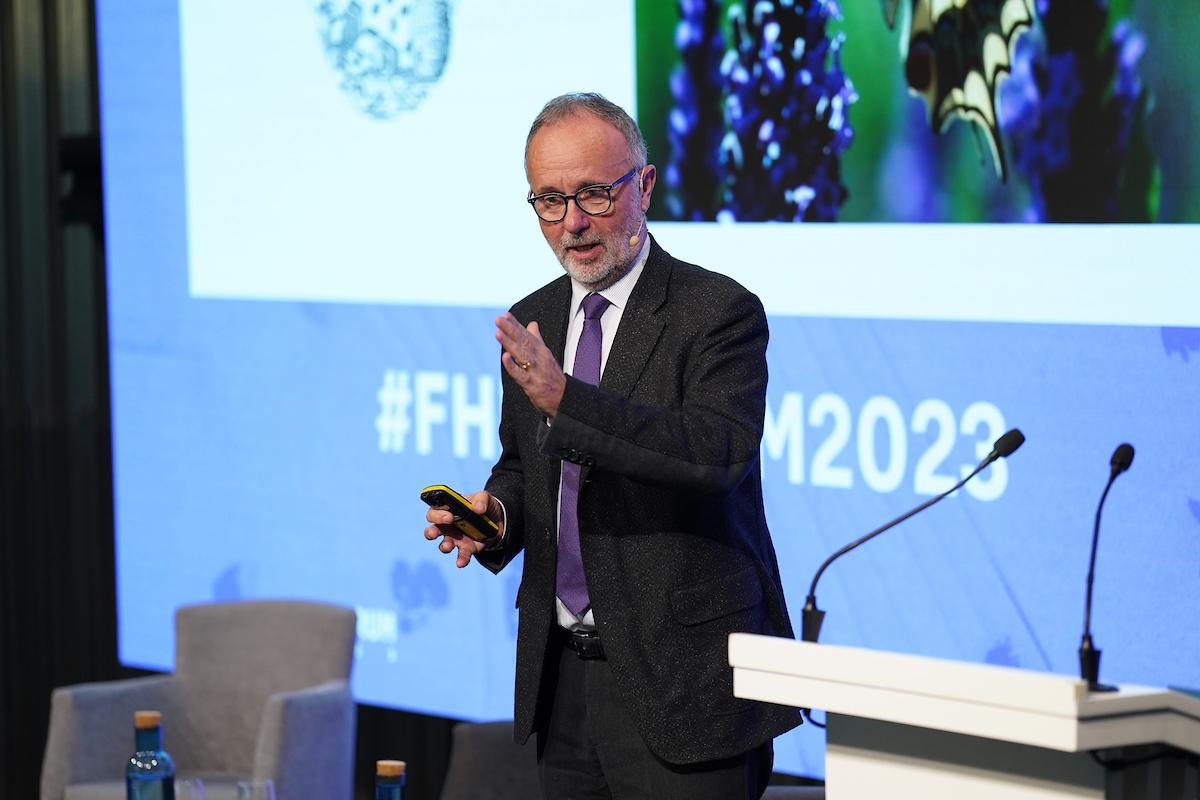Are we suffering from a kind of amnesia? Faced as we are with a major environmental problem, we would rather forget all about it. Pollution, overfishing, deforestation, intensive agriculture...we keep telling ourselves that the technology will provide the answers to our problems. Meanwhile, we go on forgetting how things were only a few decades ago, without understanding the real scope of biodiversity, even in its cultural sense.”
the world of tomorrow. the world of tomorrow. the world of tomorrow. the world of tomorrow. the world of tomorrow
humans and nature. humans and nature. humans and nature. humans and nature
Why should we care about biodiversity?
by FHH Editorial Team
Why are issues surrounding biodiversity so important? This was the question that Bruno David sought to answer, first setting the scene with a crucial paradox: “We all appreciate the beauty of living things, we enjoy contemplating the natural world and yet, we certainly do not respect it.
First of all, we need to understand what exactly is meant by biodiversity, a single word that gathers together a vast number of species and specimens. To get a real idea of what biodiversity is, we must first look at the organisms that dominate the biosphere in terms of biomass (mass of all living species in an ecosystem). This shows that plants, combined with the next largest category made up of bacteria and fungi, represent 96.7% of the total living biomass, whereas animals, the category that human beings fall into, make up a mere 0.3%. The same observation can be made by analysing a litre of water, which contains 100 million protists (unicellular microorganisms), between 1 and 10 billion bacteria and between 10 and 100 billion viruses. A little modesty would not hurt in our attempt to understand biodiversity, which is much more complex than it seems, in a constant state of flux.
“We are nothing without biodiversity”
Bruno David
When we consider the impact of humankind on our environment, we may well ask ourselves if we have entered the Anthropocene, a new epoch defined by the influence of the planet's eight billion human beings as they become the main agent of change on Earth, ahead of geophysical forces. This appears to be a legitimate question considering the damage done to water, air and earth, stemming from the overexploitation of natural resources and its consequences on the climate, which we are all familiar with today. Biodiversity suffers from this situation. Today, it is being subjected to scenarios that call to mind a possible sixth extinction. “When we compare our situation with previous geological epochs, all its ingredients lead us to believe that we are facing a process involving multiple factors, all the more insidious as it is developing without mass mortality,” Bruno David explained. “We are only at the beginning of the road, but we are going full speed.”
What must we do to face this situation? “We must learn to think differently, by adapting our activities to the environment and not the other way round, he concluded. “Technology is not the solution. Life cannot be summed up by an equation. That’s why we absolutely must learn to think collectively and remember that we are an integral part of biodiversity. This will require us to change our habits, which also means changing our lifestyle, currently dominated by consumerism. There is no planet B, and we are nothing without biodiversity. It is time to act now!”
